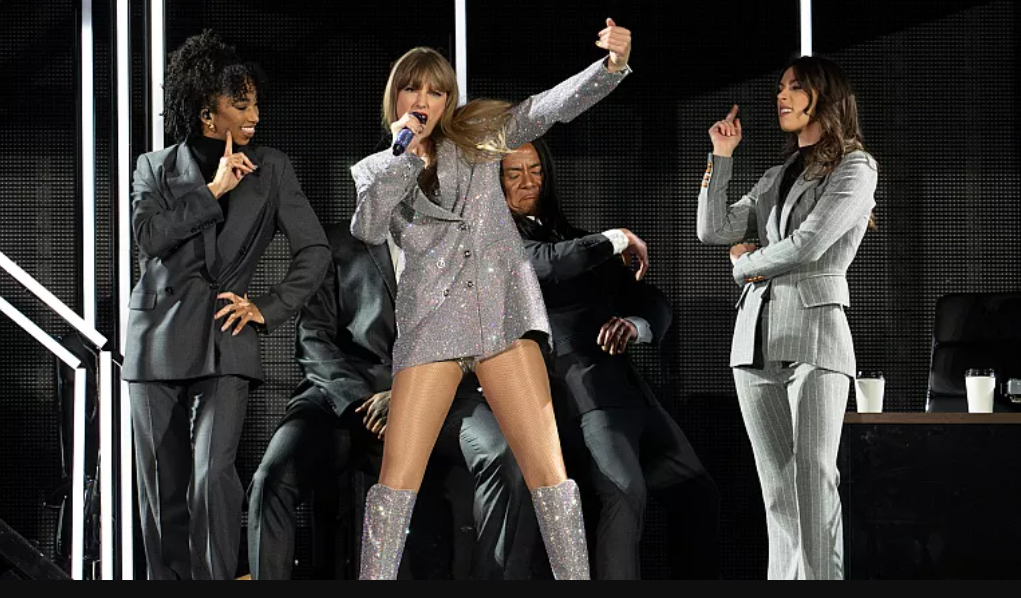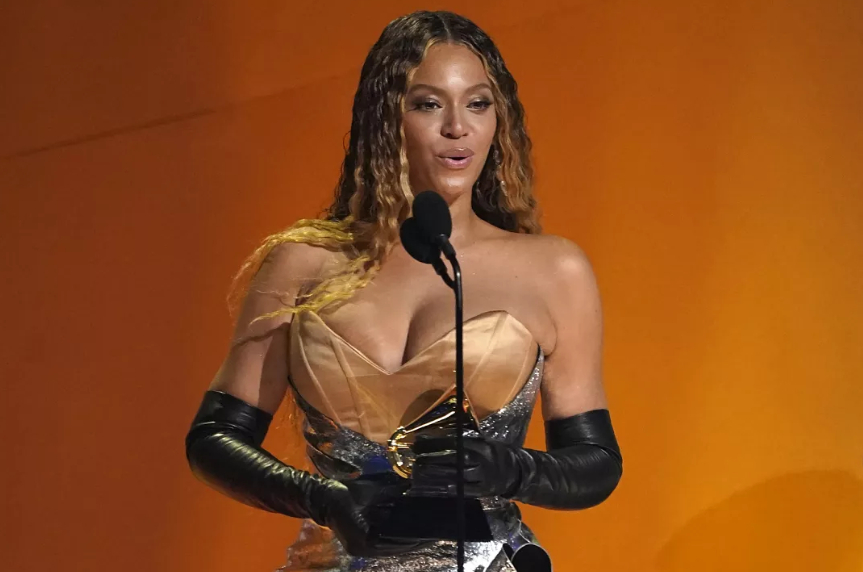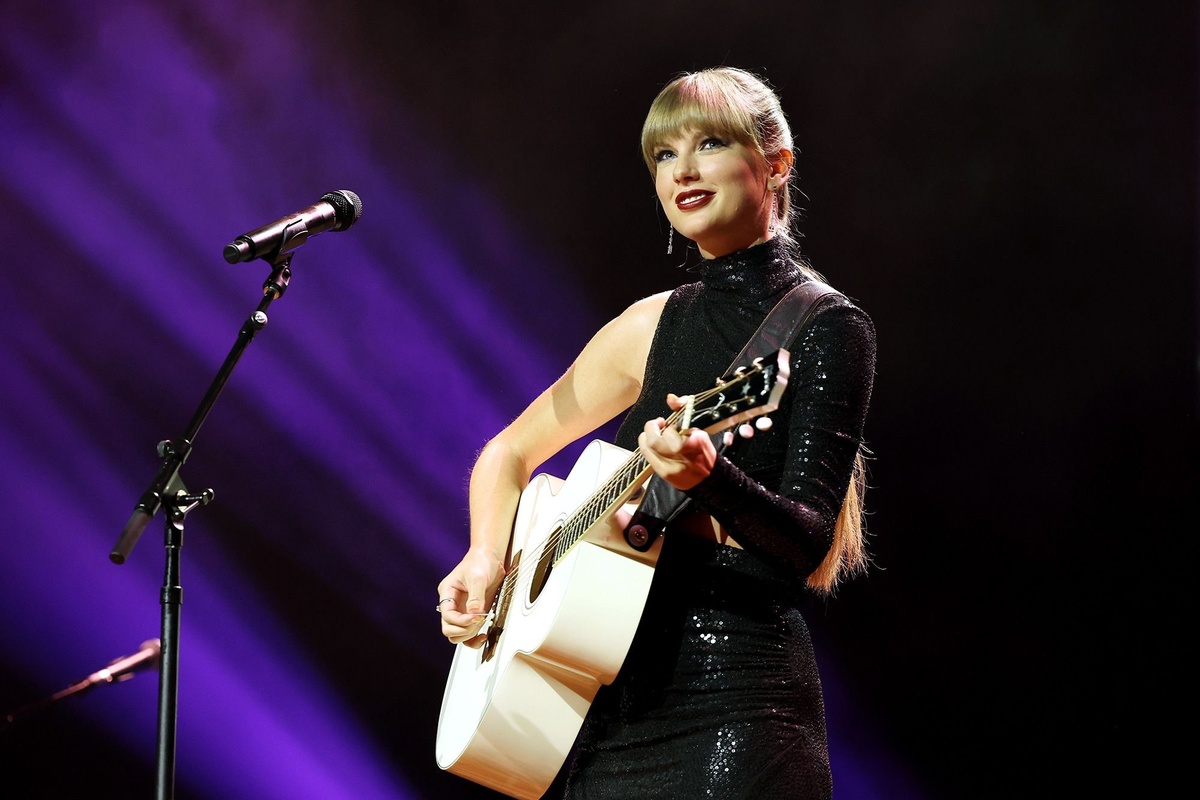‘Beyflation’, Swiftonomics’ or ‘Pinkflation’ refers to fans who spend a lot of money to go to their idol’s concert, thereby driving up ticket prices. Will a string of tours by international music stars this summer shake up the economy?
In recent years, concert tickets have increased in price. Even economists noticed and named this phenomenon: “Funflation”.

Be willing to splurge on going to a concert
Besides, economists have discovered an unusual trend during the summer: Consumers still splurge on expensive but fun experiences, from nights out to concerts, regardless of price. both increased.
From Taylor Swift’s ‘Eras’ to Beyoncé’s ‘Renaissance’ and Bruce Springsteen’s self-titled tour, some of the world’s biggest names will perform this summer for millions around the world, including Europe. Europe.
This has led some analysts to consider whether the sky-high prices fans are willing to pay to see their idols perform live and the subsequent impact on accommodation costs could be evident. significant impact on the economy or not.
In Sweden, for example, Danske Bank predicts that Beyoncé – who opened her world tour in Stockholm in May – has contributed to rising hotel prices that have driven the monthly inflation rate above zero, 2% more than expected.

The UK observed a similar impact with prices in the culture and leisure sector rising 6.8% in the year to May 2023, the fastest in 30 years. Specifically, the biggest impact comes from cultural services, especially admission fees to concerts and other live music events.
Mario Ihieme, a Beyoncé fan in London, shares: “People are willing to splurge because they know they will get quality content, plus who knows when or if their idol will take a trip? another tour or not.”
Just last weekend, 150,000 music fans paid 395 euros (£340) for coveted tickets to Glastonbury festival to see Elton John, Lana del Rey, Lizzo and hundreds of other artists perform.
Event prices in UK inflation data are based on when the show takes place, not when the ticket is purchased. But with different artists performing each month, it is difficult to compare one with another, a spokesman for the Office for National Statistics said.
“The (subjective) quality of music artists highlights how difficult it is to calculate ‘clean’ price increases,” said Paul Donovan, chief economist at UBS Global Wealth Management.
“As for UK inflation, pressure is likely to remain,” he added, noting a string of UK gigs by singer Harry Styles in June.
On retail agency Stubhub, the cheapest seat for Taylor Swift’s July concert in Seattle (USA) is 1,097 euros (equivalent to 1,200 USD); Tickets for the August show in Mexico City cost 457 euros (approximately $500) each.
Although they didn’t have to struggle to buy concert tickets like Joel, other fans said they had an easier time. Carolina Candelas spent 92 euros (equivalent to 101 USD) to meet Beyoncé with her sisters and the singer’s parents in Barcelona.
Difficult to cause inflation
According to Euronews, live music is only a subset of overall entertainment spending, accounting for a smaller portion of consumer spending than housing or food. Some people doubt that concert prices could have a discernible impact on inflation.
Andy Gensler, executive editor of Pollstar, a publication that tracks the global concert industry, called it a “ludicrous assertion” that Beyoncé’s performances would affect inflation. He said while ticket prices have increased, mid-year figures do not show a significant increase since May 2022, when US inflation was 8.6%.

Others have even made the argument that the huge impact of this recent string of huge pop tours could help “revitalize” the economy, especially as the arts and hospitality sectors suffer endured throughout the COVID-19 pandemic.
Indeed, the term “Swiftonomics” – a neologism to describe Taylor Swift’s purposeful economic footprint – is becoming all the rage as the American singer-songwriter’s latest tour is scheduled. Earning more than 570-665 million euros (equivalent to 624-728 USD) in the United States alone.
Both Taylor Swift and Beyoncé’s tours have led some commentators to speculate about their potential saving effect on the recession.
The U.S. Department of Labor does not measure inflation specifically for concert prices, but the inflation rate for live admissions events is currently 2.6 percentage points higher than overall U.S. inflation. . That gap has widened this year as headline figures have fallen.
Recently, the news that Blackpink, Korea’s top girl group, held the global tour “Born Pink” in the capital Hanoi, Vietnam has made waves on social networking sites.
The “war” for tickets this time will be very fierce because Vietnamese fans will not only compete with each other but also with Asian fans in general and Southeast Asian fans in particular.
On websites, many people expressed their excitement at participating in the show of the four Blackpink girls. Specifically, some shared that they will rent hotels near the My Dinh area for convenient transportation, while some guests are diligently “hunting for tickets”.
News
Brad Pitt’s Unfortunate News. The Legendary Actor Himself Made The Announcement
Brad Pitt has informed his followers about his latest health condition. The well-known actor has shown that he has a problem with identifying people’s faces. He suspects…
(N) Solange Breaks Silence: Jay Z’s Shocking Ban on Beyonce’s Communication with Her Revealed
In a recent interview, Solange Knowles, sister of pop icon Beyoncé, has divulged details about Jay Z, Beyoncé’s husband, allegedly prohibiting her from speaking to her own…
(N) Shocking Lawsuits: Jaguar Wright Exposes Jay-Z And Beyoncé’s Hidden Truths
Jaguar Wright is revealing explosive allegations against Jay-Z and Beyoncé. Find out why they could be facing lawsuits and learn more about the shocking claims in this…
(N) Warwick Davis brings his wife Samantha and children to the screening of Disney+ series Willow as he reprises his role 34 years on
Warwick Davis is reprising his role as Willow Ufgood 34 years on for a new Disney+ series. And the actor, 52, brought his wife Samantha, 51, along with his daughter…
(N) BLUE IVY runs to her BOYFRIEND after getting the pregnancy test frm her FATHER.
BLUE IVY runs to her BOYFRIEND after getting the pregnancy test frm her FATHER. Today, we have an incredible story that will keep you on the edge…
(N) “pray for Beyoncé” DOCTOR Reveals her condition keeps getting WORST. only God can help her now.
In the face of adversity, diverse beliefs converge on a common ground – the power of prayer. Regardless of faith or background, let us collectively channel our…
End of content
No more pages to load











